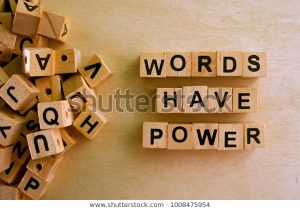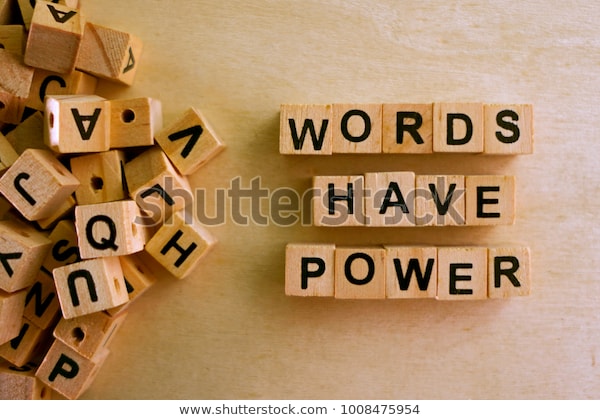Assignment 1:3 The World of Words

Words. Chamberlin talks a lot about language, in particular the strangeness and wonder of how language works. Stories, he says, “bring us close to the world we live in by taking us into the world of words” (italics mine,1). He describes learning to read and write as learning “to be comfortable with a cat that is both there and not there” (132). Based on Chamberlin’s understanding of how riddles and charms work, explain this “world of words.” Reflect on why “words make us feel closer to the world we live in” (1).
According to Chamberlain, riddles are a play on language, and they illustrate a contradiction, being both true and not true at the same time. Charms include elements of magic and, similar to riddles, they discuss things that may not be able to happen in reality. Nevertheless, a bit of belief and imagination is required to consider a charm or riddle. Even if a riddle or charm isn’t real, one must let down their guard in order to imagine and take seriously a different idea of reality. However, after a while, what was once a play on the imagination begins to shape actual views about reality, merging imagination and reality.
Similarly, the world of words involves the propagation of certain ideas as reality because each word or phrase emphasizes a certain outlook, assumptions about how the world works, and common ways of thinking about something. Chamberlain mentions how learning to read and write is similar to “being comfortable with a cat that is both there and not there” (132). When I learned certain types of words in the past, for example, “obstruct”, “obey”, “homeless”, etc. these words at first seemed foreign, not fitting into the way I viewed the world. This is because I was used to seeing phenomena and experiencing it in an undefined way. Also, I wasn’t used to much of the connotative meaning surrounding words so these specific lenses seemed limiting and didn’t fit smoothly into my perception of reality. Words categorize phenomena and define how the lens from which phenomena should be viewed. They reinforce certain ideas, incorporating imagination, meanings, and emotions into shaping how people view aspects of the world. For example, when used in relation with the government, “Listening to” or “Following” what the government says is neutral and seems to imply more free will. However the word “Obeying” in relation to what the government says, involves a relationship of power, stepping down, authority. Also, this idea of “Obeying” makes sense because of relations to other words and ideas of authority and law as final and morally all-powerful. In this way, although words include elements that are real–trees, objects, academic disciplines–they also involve imagination, in terms of lens of meaning, associations, and beliefs in shaping a culture’s collective outlook towards reality.
Words make us feel closer to the world we live because of multiple reasons. Without language, we wouldn’t be able to disconnect ourselves nearly as much from our experience in a way that allows us to think about it, we would simply experience. Words emphasize certain aspects of reality and experiences, imbedding emotions and meanings to experiences. Cultures have large repositories of poetry and music to deepen the emotional experiences we have through combinations of associations of ideas associated with reality. Words make us feel closer to world because they are very emotionally laden; we feel attached to there meanings, cry because of them, and feel happiness because of them. Also, they create a shared frame of viewing and experiencing things, enabling people to relate and bond around the phenomena and experiences that happen in the world.
Perry, Philip. “Does the Language We Speak Affect Our Perception of Reality?” Big Think, Big Think, 5 Oct. 2018, bigthink.com/philip-perry/does-the-language-we-speak-affect-our-perception-of-reality.
Sato, Dan, director. How Does Word Choice Affect Tone and Meaning?YouTube, YouTube, www.youtube.com/watch?v=6-Z26ffxZaw.

I know I am late to comment, but I wanted to comment on this post. I definitely feel that word choice can be crucial, due to the connotations, hidden meanings or interpretative value that they possess. When you mentioned the difference in the power structure in the words “obey” versus “follow” or “listen to,” I definitely felt the difference of “surrendering” vs. “agreeing” When the government expects us to “obey the law,” there is a certain inherent violence to that statement. It is like the difference between a threat and a promise. A promise, when broken, disappoints both parties, because it also requires the consent or agreement of both parties. A threat, on the other hand, does not require the dynamic to be equal, and instead positions the person making the threat over their victim and implies violence. The willingness of individuals to obey someone in power can be a result of the threats they make. Laws can be threatening in nature, as they are often based on systems of punishment. This all brings to mind the following: if there is submission to a more powerful party, can governance really be considered democratic?
Wow what a great question!! I think not. Maybe nowadays a lot of governments say they’re democratic but try to use ways to restrain that freedom mentally. So you really seem to have a choice and theoretically could make it but you wouldn’t make it because of the constraints that are put whether through social ostracization, proprogation of what is okay vs. not okay, what will put you in jail, stain your record, life opportunities etc. I agree their are definitely a lot of subconscious threats put in place, and although they’re subtle, they discourage you by making you fear being too different/straying too far from others in action and thinking.one question is how purposefully did the system of influences fall into place? In my opinion, democracy is partially a cover to please the people, to make them think they should be happy with the “freedom” given to them despite being constrained subtlely yet deeply in many ways.
Hello Anonymous – In order for me to include your comments in your evaluation sheet, I need to know who you are. Thank you.
This was me!
Hello Gabby,
Thank you for an interesting exploration of my question. I had to read this twice to fit it all together. You write:
“Words make us feel closer to the world we live because of multiple reasons. Without language, we wouldn’t be able to disconnect ourselves nearly as much from our experience in a way that allows us to think about it, we would simply experience.”
The above passage offers a fascinating contradiction that really made me stop and think about the meaning of these words: closer/disconnect and think/experience.
The idea that we become closer by disconnecting in order to think rather than experience. Does this idea prompt the notion that ‘thinking’ is better than ‘experiencing’? There is certainly an interesting dichotomy at work here.
To answer your question, I wouldn’t say thinking is better than experiencing. However, thinking does allow us to connect with the world in a different way, through associations of concepts intertwined with an emotional experience from these concepts. However, thinking with words can also limit our ability to fully experience things as they are, without a constraining overlay of mental concepts and associations. Words can definitely work with an experience, augmenting it. Beautiful ideas can create an emotional quality or mental play that can make an experience more beautiful. However, words can also take away from the experience or change it. Neither thinking or experiencing is better or worse, but they both have benefits in some ways, and may lack in some ways compared to the other.
Gaby